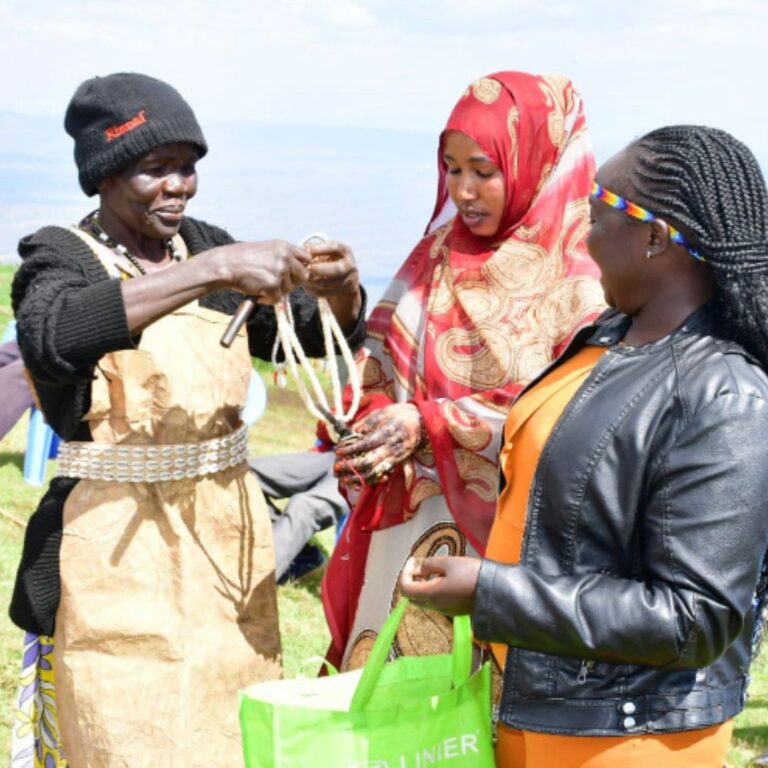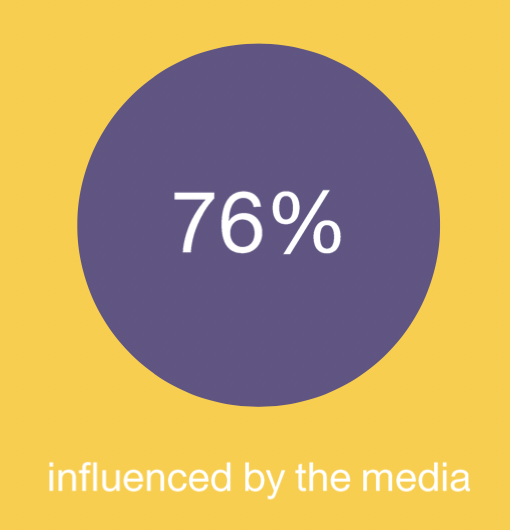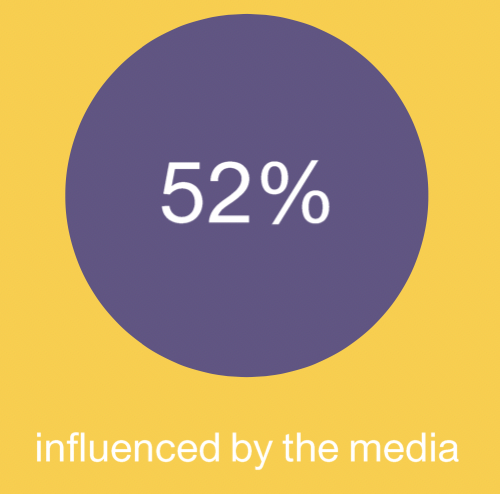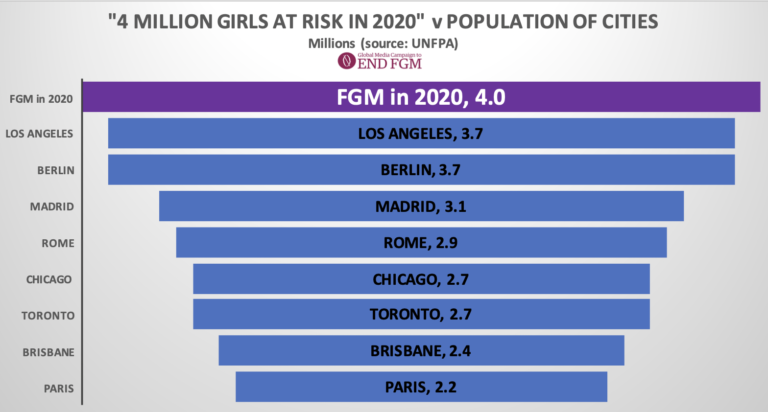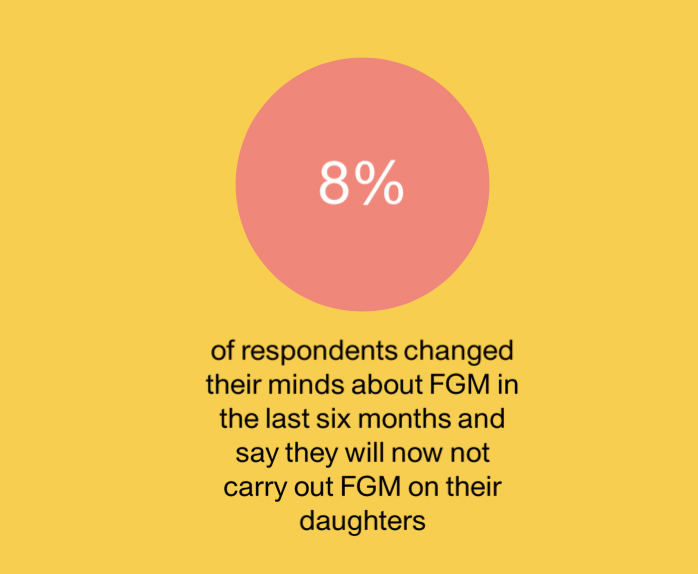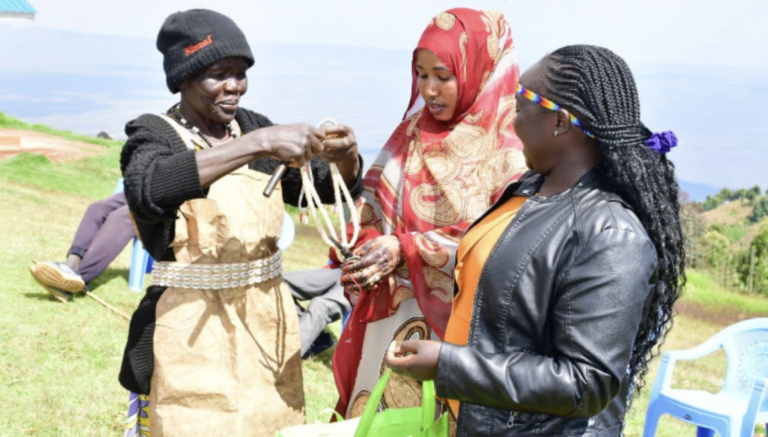This followed on from a year of intensive locally-led campaigns in Mali.
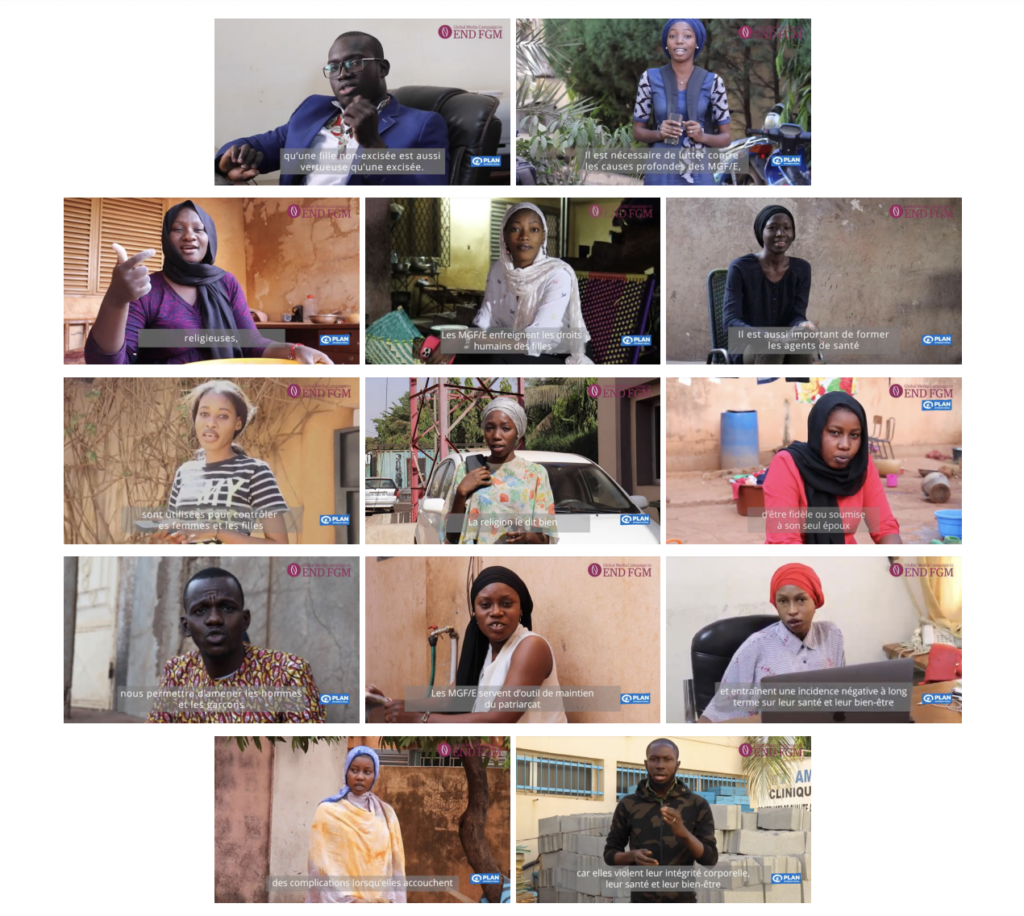
harmful consequences on girls’ and women’s physical and mental health
Our endline study was conducted in February 2022 by lean data specialists ’60 Decibels’. This followed on from a baseline study in February 2021 and midline in October 2021.
Our campaigns were funded by Plan Germany, Plan Denmark and The World Bank.
As ever with comprehensive and systematic data collection there is a welter of information that can be used to evaluate our performance and inform future decision making.

The full report can be read here
I would like to highlight just one particular finding and the possible lessons learned.
In any survey the population sample is key.
When it comes to an impact study on FGM the precise mix of female/male participants will impact the results. And, as we found, the population samples access to radio and TV.
These obvious points came up because the population sampled in our endline study had a significantly lower level of females and lower access to radio and TV – compared to the baseline study.
This had a direct impact on the initial results presented by 60 Decibels.
Not least because ‘if’ people had no access to radios or TV’s how were they expected to be influenced by our media campaigns?
And when it comes to the medical dangers of FGM – it is clear women have far more understanding than men.
So in short, our non consistent population sampling was confusing the results.
This sampling discrepancy was solved, when 60Decibels weighted the sample population to account for the changed female/male mix and screened for the changing access to media ratio.
The resulting findings was what our lean data specialists called a “statistically significant” variance.
There was a statically significant relationship between the respondent’s personal position on FGM, and whether they had heard influencers talking about FGM in the media. Respondents who had heard influencers speak about FGM in the media since October 2021 were more likely to report that they would not carry out FGM on their daughters (85%), compared to those who hadn’t (68%).
exert from 60 Decibels endline report – February 2022
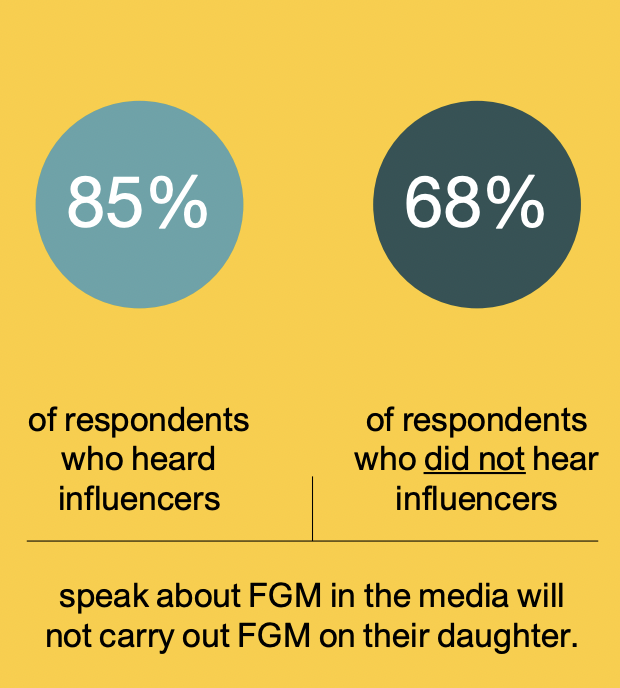
So what are the lessons learned?
1. The “statistically significant” shift in attitude towards not carrying out FGM on their daughter – when someone is able to hear or see our messaging – is clear to see.
Tightly focussed and sustained media campaigns work!
And, the GMC strategy works!
2. But, media campaigns only work if people have access to the media in the first place.
So obvious but this should not be assumed. We therefore need to ensure every community we work in has better access to radios and TV. At only $10 for a radio – this could be money well spent given the extraordinary results we report. (If you do want to donate – please do so here).
3. (And, this is more an internal learning for future surveys we conduct). We need to ensure the profile of our samples surveyed remain more consistent over the duration of the studies – in order to ensure our impact and learnings remain valid.



